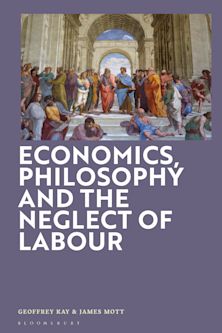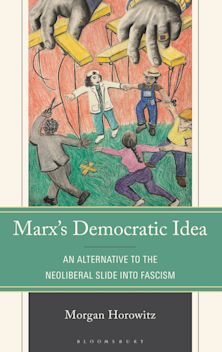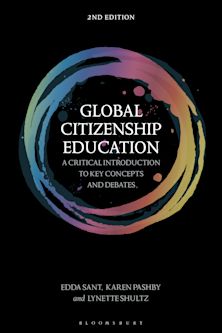- Home
- ACADEMIC
- Philosophy
- Social and Political Philosophy
- Reading the Dream
Reading the Dream
A Post-Secular History of Enmindment
Reading the Dream
A Post-Secular History of Enmindment
This product is usually dispatched within 2-4 weeks
- Delivery and returns info
-
Flat rate of $10.00 for shipping anywhere in Australia
You must sign in to add this item to your wishlist. Please sign in or create an account
Description
In Reading the Dream the poet and scholar Peter Dale Scott has composed a poem in prose for our time. This is a work of art emerging from a passionate social vision. Scott examines our present state of post-secularity through the imagination of the past. Using devices such as the rational and nonrational, or the yin and the yang, Scott focuses not just on the reasoned current of written history but also on myths, beliefs, and even dreams. The author searches for moreness throughout the culture of the past. He reawakens the ultimate human quest for transcendence of ourselves to repair a political order in ruins.
This book seeks to transcend the slow breakdown of our current global political order by returning to its generative cultural roots in enmindment (that is, both secular and spiritual enlightenment). It sees our emerging global culture as dialectical on interconnected levels: the tension between scientific (yang) analysis and non-rational (yin) hopes and dreams; the source of this tension in the bicameral human brain, in competing rural and urban ethical values, and in the master-servant relationship. Behind the screen-history of chaotic political violence, it revives a vision of cultural progress, in which the vertical imposition of political order from above is slowly supplanted by the emerging post-secular tolerance of cultural diversity, including both religion and science, from below.
Product details
| Published | 18 Jan 2024 |
|---|---|
| Format | Hardback |
| Edition | 1st |
| Extent | 374 |
| ISBN | 9781538181515 |
| Imprint | Rowman & Littlefield |
| Dimensions | 237 x 159 mm |
| Series | World Social Change |
| Publisher | Bloomsbury Publishing |
About the contributors
Reviews
-
Tremendously interesting and instructive….
Charles Taylor, Professor Emeritus of Philosophy, McGill University
-
Reading the Dream is a unique meditation on poetry, history, religion, and politics from one of the most important poets of our time. It is the result of decades of deep thinking about the fate of poetry in human history as well as the nature of our shared human condition. Its horizon is the meeting of poetical visions with pivotal historical developments in religion and politics, and its arc of arguments bridges East and West as well as the ancient and the modern. In the midst of our current despair over political conflicts and ecological disasters, this book shows us where hope may be found. This is thinking about poetry and history at its most urgent and relevant. It is a theological poetics that we all need, now more than ever. The book has true magnificence.
Anna Sun, Associate Professor of Religious Studies and Sociology, Duke University, prize-winning author of Confucianism as a World Religion: Contested Histories and Contemporary Realities
-
You will be set upon by packs of wild dogs and post-moderns who hate all suggestions that there are universals beneath the flux. But I applaud you. You disdain the boundaries of established fields, at least when they are set up to tell us where we must not tread. Your knowledge is wide, your curiosity boundless.
I honour you for the wide knowledge and the insight that this endeavour required, and I am also impressed by your energy! May this work be widely read and deeply pondered!Graeme Macqueen, founder of the McMaster's Centre of Peace Studies
-
Reading the Dream: A Post-Secular History of Enmindment by Peter Dale Scott is a deeply thought and personally felt study of the key role of pivotal shifts in the ethical evolution of Eastern and Western civilizations. This impressively researched work highlights in detail the enduring development of social, cultural, and spiritual values that underlies the superficial rise and fall of political structures — and provides an inspiring basis of hope for the future of humanity.
Edwin Bernbaum, author of Sacred Mountains of the World
-
I’ve been reading through your manuscript with much pleasure and profit. Its poetic vision is so grand I could wish you were doing it in verse--but it often feels anyhow like the high language proper to verse. What you have written is magnificent in itself and we hope influential in the world.
Gordon Teskey, Francis Lee Higginson Professor of English Literature, author of Delirious Milton
-
Pull a thread from the weave of history and it starts to unwind. Unless the one doing the pulling is a master of interpretation and invention like the poet, scholar and critic Peter Dale Scott. In his hand a thread of history is turned and turned until it reveals its message for our lives now. His new book, Minding, a History begins and ends with a quote from Simone Weil: “From where will a renewal come to us, to us who have spoiled and devastated the whole earthly globe? Only from the past, if we love it.” The whole book is a consideration of what such love entails. The final passage in the book details a troubling story about St. Augustine. In need of support for his new monastery, Augustine inveighs to have the Church in Rome condemn Pelagius, a British Monk whose teachings against material wealth might threaten Augustine’s relationship with wealthy patrons. But like a Talmudist interpreting a troubling piece of Torah, Scott sees a hidden meaning in this story: the dialectic at play here between salvation by deeds and salvation by grace. The transactional side of history, the continual play of bad and good rulers and those (including artists) who served them, is less important to Scott then the poetic side—the revelation Augustine brings of the primacy of grace, or what Scott calls moreness. It is a revolution of consciousness parallel to (or at times perpendicular) to the social that Scott would celebrate. A view of history that returns the poet to his place as prime mover.
David Shaddock, author of Poetry and Psychoanalysis

ONLINE RESOURCES
Bloomsbury Collections
This book is available on Bloomsbury Collections where your library has access.



































